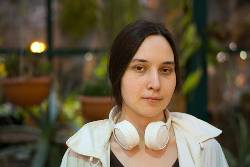BOSTON (AP) — A Harvard University researcher accused of smuggling clawed frog embryos into the United States was indicted Wednesday on additional charges.
Kseniia Petrova, a Russian-born scientist conducting cancer research for Harvard Medical School, was indicted Wednesday by a federal grand jury in Boston on one count of concealment of a material fact, one count of false statement and one count of smuggling goods into the United States. She had been charged with the smuggling in May.
Despite the additional charges, Petrova will remain on pretrial release.
A lawyer for Petrova could not be reached for comment.
She was returning from a vacation from France in February when she was questioned by U.S. Customs and Border Protection at Boston Logan International Airport.
Petrova, 30, had stopped at a lab specializing in splicing superfine sections of frog embryos and obtained a package of samples for research. Federal officials on the social media website X accused her of lying about “carrying substances” into the country and alleged that she planned to smuggle the embryos through customs without declaring them.
She told The Associated Press in an interview in April that she did not realize the items needed to be declared and was not trying to sneak anything into the country.
Petrova was told her visa was being canceled and detained by immigration officials in Vermont after her initial arrest. She filed a petition seeking her release and was briefly sent to an ICE facility in Louisiana, after which a judge ruled the immigration officers’ actions were unlawful. In May, she was charged with one count of smuggling.
If convicted of the smuggling charge, Petrova faces a sentence of up to 20 years in prison and a fine of up to $250,000. She also faces a sentence of up to five years in prison and a fine of up to $250,000 on the charges of concealment of material fact and false statements.
...


 Copyright © 1996 - 2025 CoreComm Internet Services, Inc. All Rights Reserved. | View our
Copyright © 1996 - 2025 CoreComm Internet Services, Inc. All Rights Reserved. | View our